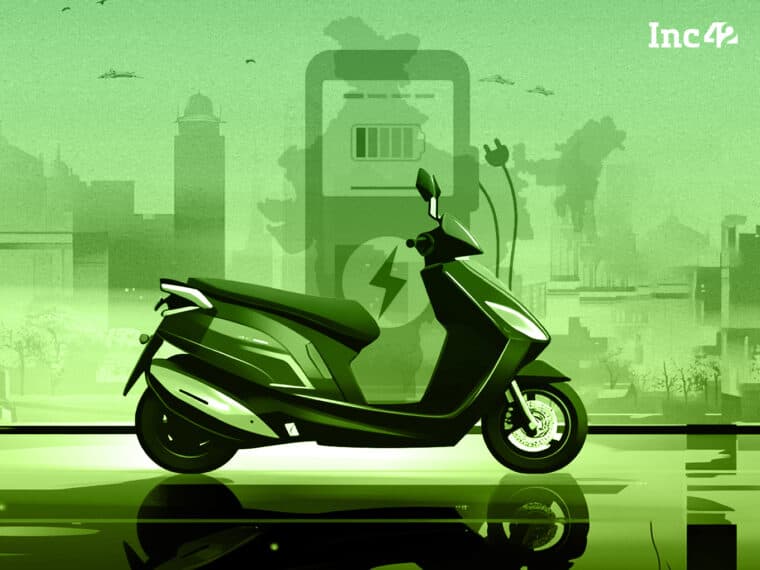
The state government is considering offering a purchase subsidy of up to INR 30,000 for buying two-wheeler EVs under its upcoming Electric Vehicle Policy 2.0
The proposal, which is still under government consideration, proposes an incentive of INR 10,000 per kWh (up to INR 30,000) on two-wheeler EVs for all buyers
The report also said that the first 10,000 women holding a valid driving licence will be eligible for subsidy calculated at INR 12,000 per kWh and capped at INR 36,000
In an effort to accelerate EV adoption and improve the air quality in Delhi, the state government is considering offering a purchase subsidy of up to INR 30,000 for buying two-wheeler EVs under its upcoming Electric Vehicle Policy 2.0.
Citing officials and a draft policy document, PTI reported that the proposal, which is still under government consideration, proposes an incentive of INR 10,000 per kWh (up to INR 30,000) on two-wheeler EVs for all buyers. An additional INR 10,000 may be offered for scrapping petrol two-wheelers that are over 12 years old.
The report also said that the first 10,000 women holding a valid driving licence will be eligible for subsidy calculated at INR 12,000 per kWh and capped at INR 36,000.
For electric three-wheelers, including autorickshaws and goods carriers in the L5M category, a subsidy of INR 10,000 per kWh is expected, capped at INR 45,000.
Also, scrapping incentives of up to INR 20,000 may be provided for old CNG autorickshaws.
Notably, for CNG autorickshaws that complete 10 years during the policy period, a replacement incentive of INR 1 Lakh is also proposed for their mandatory replacement.
The draft policy recommends banning new CNG autorickshaw registrations from August 15, 2025. Registrations of only electric autorickshaws will be allowed after it.
For electric goods carriers, the report claimed that incentives will go up to INR 45,000 for three-wheelers and INR 75,000 for four-wheelers, valid for three years. Price caps are set at INR 4.5 Lakh for L5M and INR 12.5 Lakh for N category vehicles.
Delhi’s Push For Full EV Transition With Policy 2.0
The upcoming Electric Vehicle Policy 2.0 is part of Delhi’s broader push to aggressively phase out fossil fuel vehicles and make EVs mainstream in the capital.
The policy, which has reportedly received in-principle approval from Delhi’s transport minister Pankaj Kumar Singh, proposes several strong measures. Among them is a potential ban on registration of petrol two-wheelers, starting August 2026. The policy also proposes stopping registrations of fossil fuel-run three-wheelers from August this year.
The government also aims to electrify the fleets of the Municipal Corporation of Delhi (MCD) and Delhi Jal Board (DJB) completely by 2027.
It proposes setting up 13,200 public charging points, ensuring a charging station at every 5 kms.
The policy has set an ambitious registration target of 95% of all new vehicles by 2027 being electric. The target is 98% for 2030.
The policy is likely to be cleared by the Delhi cabinet soon. The state government recently extended the time period of the current EV policy by 15 days from its expiration date of March 31.
The developments come at a time when EV adoption is already on the rise in Delhi. According to Vahan data, 85,285 EVs were registered in 2024 in the national capital as against 73,683 units in 2023.
Delhi’s new policy also aligns with the Centre’s INR 10,900 Cr PM E-DRIVE scheme and is part of a larger trend, with states like Karnataka and Tamil Nadu also launching their own clean mobility initiatives.
Notably, the Tamil Nadu government recently proposed a new scheme under which 2,000 gig workers will receive a subsidy of INR 20,000 each for purchasing new two-wheeler EVs.




 Fintech
Fintech Travel Tech
Travel Tech Electric Vehicle
Electric Vehicle Health Tech
Health Tech Edtech
Edtech IT
IT Logistics
Logistics Retail
Retail Ecommerce
Ecommerce Startup Ecosystem
Startup Ecosystem Enterprise Tech
Enterprise Tech Clean Tech
Clean Tech Consumer Internet
Consumer Internet Agritech
Agritech




























